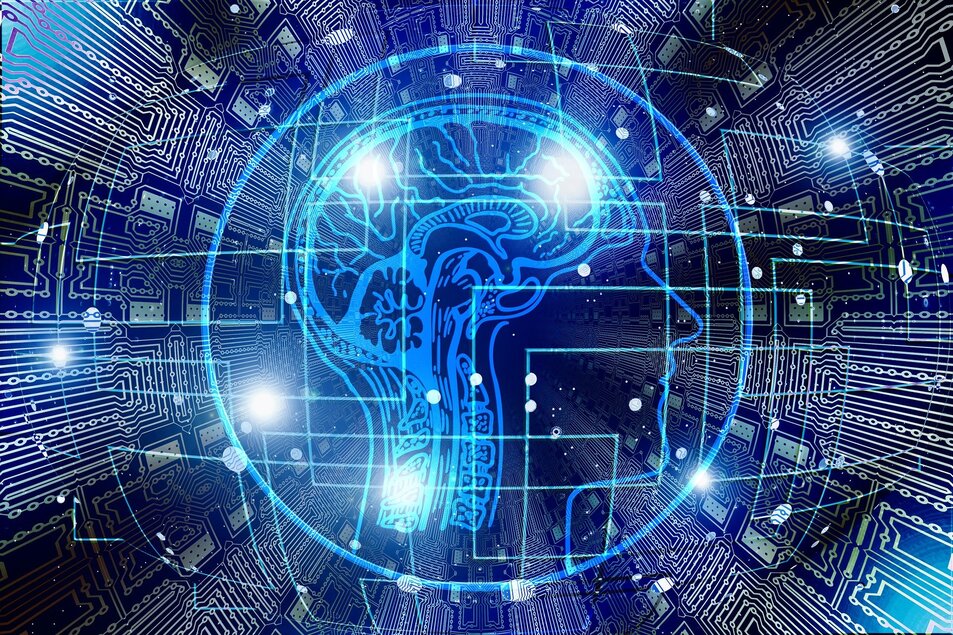Table of Contents
Introduction
With the further development of technology, the business starts to realize new and inventive tools to improve efficiency. One aspect where technology has been very noticeable is in marketing. Artificial Intelligence in marketing is an application that has revolutionized marketing which is one of the examples of this evolving technology. In this article, we will analyze what artificial intelligence in marketing is, how it is used and the benefits and challenges of employing it.
What is Artificial Intelligence in Marketing?
AI in Marketing means using AI technologies, such as Machine Learning, to automate and optimize marketing assets. It relies on the use of the powerful algorithms to process data, forecast customer behavior, and tailor marketing approaches.
Importance of Artificial Intelligence in Marketing
Competitive Edge:
Embracing AI is a way for brands to remain relevant when the market environment is dynamic and volatile. It is used to improve marketing campaigns that would be more focused and personalized. This will help in generating good customer involvement and retention.
Enhanced Customer Experience:
The latest AI technology includes personalized content creation and predictive analytics. This leads to a better user experience by sending tailored content and offers to a single client.
Efficiency and Automation:
AI tools affect marketing activities in indirect ways via automating of manual tasks, acceleration of processes, and an improved use of resources that results in higher productivity and reduced costs for firms.
Real-Time Insights:
AI is the source of the instant data of marketer on campaign performance, customer`s interaction, and market trends, which enables them to be actionable in no time and make the optimization of the marketing strategy possible.
Improved ROI:
Through the utilization of AI for marketing, businesses can enhance their marketing investments, precisely aim the proper messages to the right audience, and consequently enjoy the increasing in the ROI of marketing efforts.
Best Practices to follow for implementing Artificial intelligence in Marketing
Role of Artificial Intelligence in Marketing:
AI in marketing is the ability to produce high-level jobs with the use of deep learning and machine learning to process vast pieces of data. It gives organizations the ability to make decisions based on data details, automating tasks, optimizing campaigns and tracking pattern of data that may not be identificable by humans because of the limitless number of data.
Challenges in Implementing AI in Marketing:
Deployment AI in marketing is the critical part where weathering the storm and strategizing is inevitable. It is not easy to only turn on a button; it is the identification of where AI works best(efficiently, nice customer experience and sales growth) to utilize the AI itself to do the work. It is a step by step procedure for discovery and comprehension of AI and its transformative abilities for marketing domain.
Identifying Use Cases for AI Implementation:
One of the fundamental prerequisites in this case is to think through the utility cases for AI where it can make a good impact. This involves exploiting the predictive analytic capabilities to target the suitable audience with custom messages, automating no brand functions such as lead qualification and scoring, and finding out the hidden patterns in data that human analysts may miss.
Importance of Data Quality:
Creating a rock-solid basis of clean and correct data is the basal point of AI result prediction. It is paramount for the companies to make sure that the data fed to AI systems is good, correct, and processed with last error free manner so as to avoid any kind of biases or errors in the decision-making process. Data quality can be measured quantitatively, which influences directly the functioning of the algorithms.
Training and Education for Employees:
Companies should emphasize the open-ended education and training of individuals who will interact with the artificial intelligence. In a way, this type of training should be centered on enhancing the know-how and proficiency required to be able to apply AI in an effective way. Staffers need to learn how AI operates, decode the outputs and blend AI-inspire insights into what they do to market the products.
Benefits of Following Best Practices:
Adopting these guidelines, businesses can utilize AI’s strength to stay ahead of others, obtain critical business information in time, and add new dimensions to customer’s experience. The integration of AI in marketing is highly efficient in targeted marketing which is enhanced through deep insights and increasing time efficiency, which in turn offers a platform for making better decisions hence the growth of the business.
Conclusion
AI is redefining marketing strategies with the help of sophisticated technologies such as machine learning and big data management, all of which result in higher efficiency, better customer experience, enhanced revenue, and data-based decision making. Despite obstacles like lack of skilled professionals and data security issues, companies can make it big by starting little, offering training and ensuring ethical AI usage. AI technologies such as chatbots already demonstrate substantial progress in the field of customer experience and retention. In the future, AI in marketing will be able to do personalized communication, automation of some tasks, as well as optimization of approaches. To remain competitive business must update on new trends, monitor performance of AI, and adjust strategies in the dynamic AI driven marketing landscape.



